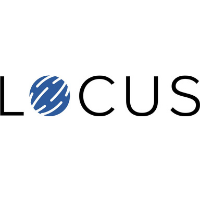
Locus.sh
View Brand PublisherGovernment vs startup: Leaders share how to thrive in the modern-day workplace, hiring best practices and more
The corporate work culture is undergoing a major transformation. People’s attitudes towards work, combined with the freedom and flexibility that comes with technology, is confronting archaic workplace and management practices head-on.
On the third episode of Locus Inspire, Nishith Rastogi, CEO, Locus in conversation with Amit Ranjan, Architect, National DigiLocker Project, National eGovernance Division, Ministry of IT, Govt of India, spoke about what it takes to be a new-age founder, how to build high-performing teams, and more.
When Amit was asked to join the government, he knew he had to be in the driver's seat to drive change. "I have always been very operational, it's in my DNA. A lot of people work as advisors for the government. But I wanted to be an insider - be inside the office, sit in the same chair, eat the same food as them. I'm thankful I got a chance to see this part of India," he said.
Hiring in startups vs government
Although there are initial monetary constraints when it comes to hiring in a startup, one has the freedom to be creative. The best available talent in the market may not be affordable for certain functions and that is when the need to hire advisors or consultants arises.
On the contrary, despite being bound by a lot of rules and regulations in the government sector, one has the freedom to work outside the government DNA. The inherent deficiencies are augmented with specific skills from the private sector.
"The government very well understands the word “projects” but has no intelligence about the word “product”. My role has been to bring product thinking and impart it to the team," said Amit.
Product mindset over market-oriented mindset
The product landscape is bifurcated into two buckets - experiential and transactional. While the former includes consumer and technology experiences, the latter is about processes in the offline world that needs to be moved online.
Amit noticed that there's a lot of innovation in the transactional bucket in India; what needs attention is the experiential bucket. You need a product mindset rather than a market mindset. "If you think too much about the size and competition of the market, you're forced to optimise for those variables. In turn, you forgo the focus that should have been completely given to the product," he shared.
The only challenge, Amit said, is to get investors to back that methodology. On the bright side, Nishith said that there are investors like the ones who have invested in Locus, who were patient with long sales cycles early on.
Product teams today are smarter than decades ago. Back then, the medium and the verticals within it were new, and a lot of time went behind understanding it. "There was a lot of trial and error then. Today, with established playbooks, founders are getting to the point much quicker. The institutional risk remains but the know-how is much better now compared to earlier," said Amit.
Managing people and productivity
Productivity doesn't depend on time management, according to Amit. It is rather the ability to prioritise and pay attention to the right things.
This is a two-step process. First, learn to say no to anything that comes your way. This way, you can manage your attention. Second, divide this attention into different buckets like personal, professional, hobbies, etc., and then prioritise. "I'm a big fan of taking notes and after several apps and platforms, I've gone back to the good old pen and paper. Nothing beats that," he said.
Nishith added that prioritising the calendar every week is important to check if a meeting can be substituted with an email, to save time.
When it comes to people management, Amit said that beyond trust, other things like coming across as authentic and transparent, asking the right questions, and treating people right matter too. One of the ways is through stock option plans or ESOPs. “If you need startup employees to feel motivated, they need to see the company as their own and be invested in it. A best practice in ESOP is to try and give it to everyone, regardless of their role or seniority,” he said.
Back in the day, it was tough to see value as people didn't know much about it. Today, Indian companies are realising that the path to IPO may be long and in the intervening period, you want to ensure liquidity through these buybacks.
Advice for entrepreneurs
As an investor and mentor to various startups, Amit said that it's a great time to be an entrepreneur. "If you're in technology and have a finger in the startup pie, it's a dream come true. There's far more capital in India than the market can absorb," he shared.
His advice to anyone starting up is to have multiple members in the founding/core leadership team, who can cover as many business skills as possible, from manufacturing, production, sales, marketing, HR, and technology.
Also, founders need to think and act differently in different stages of the startup journey. "What you did in the past may not work in the future, in terms of product, processes, team and culture. All of this will move at a certain pace, and you need to keep adapting to the change," said Amit.








